Benedicta Norell: 'Being called a terrible mother was a defining moment for me'
- samszanto2
- Nov 2, 2024
- 5 min read
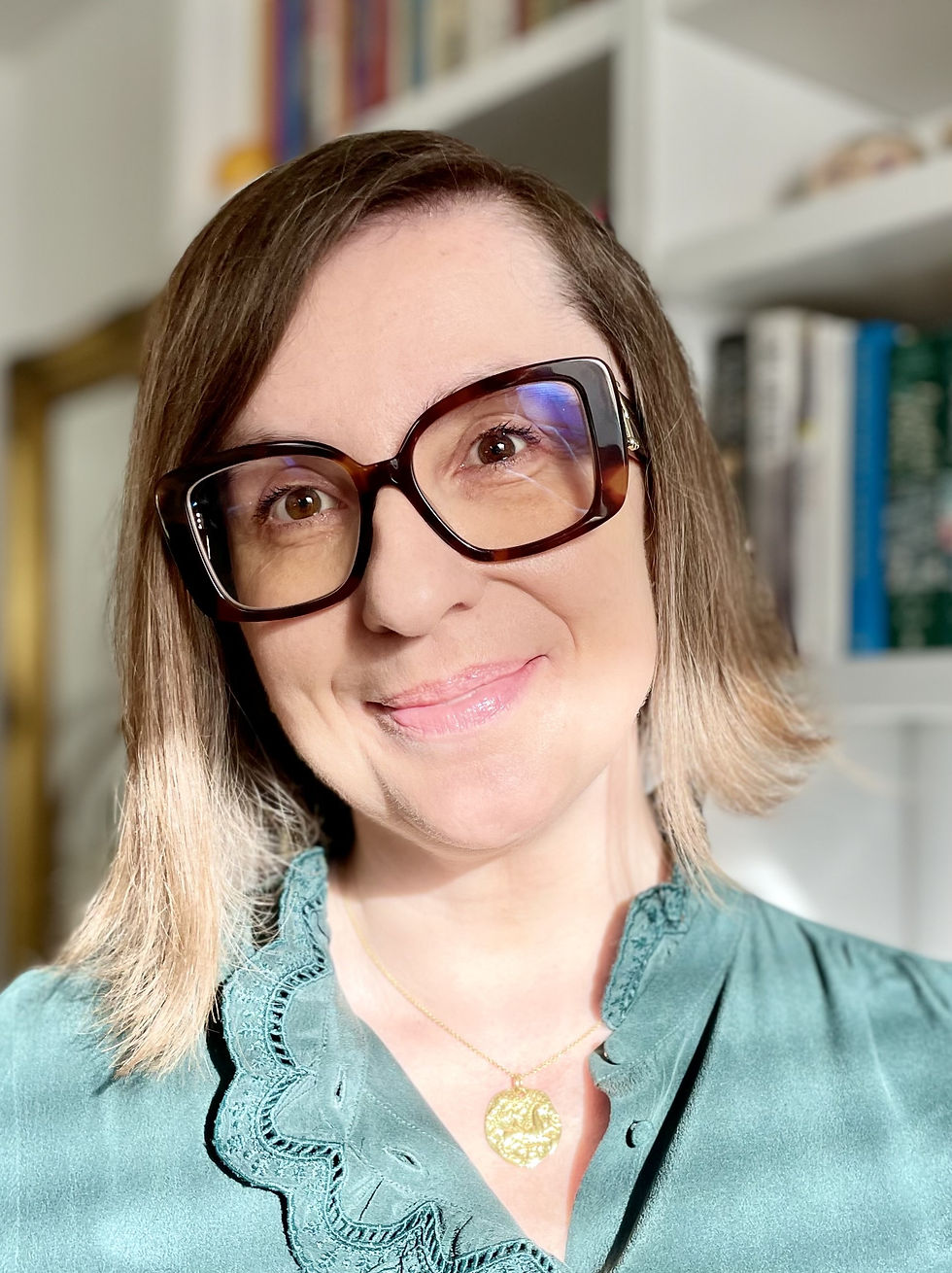
A chat with Benedicta Norell about her poetry pamphlet, Terrible Mother (Black Cat Poetry Press, 2024)
How would you describe Terrible Mother in one sentence?
Terrible Mother is a memoir about healing in midlife, lived through the experiences of being a daughter, having a daughter, and connecting to nature.
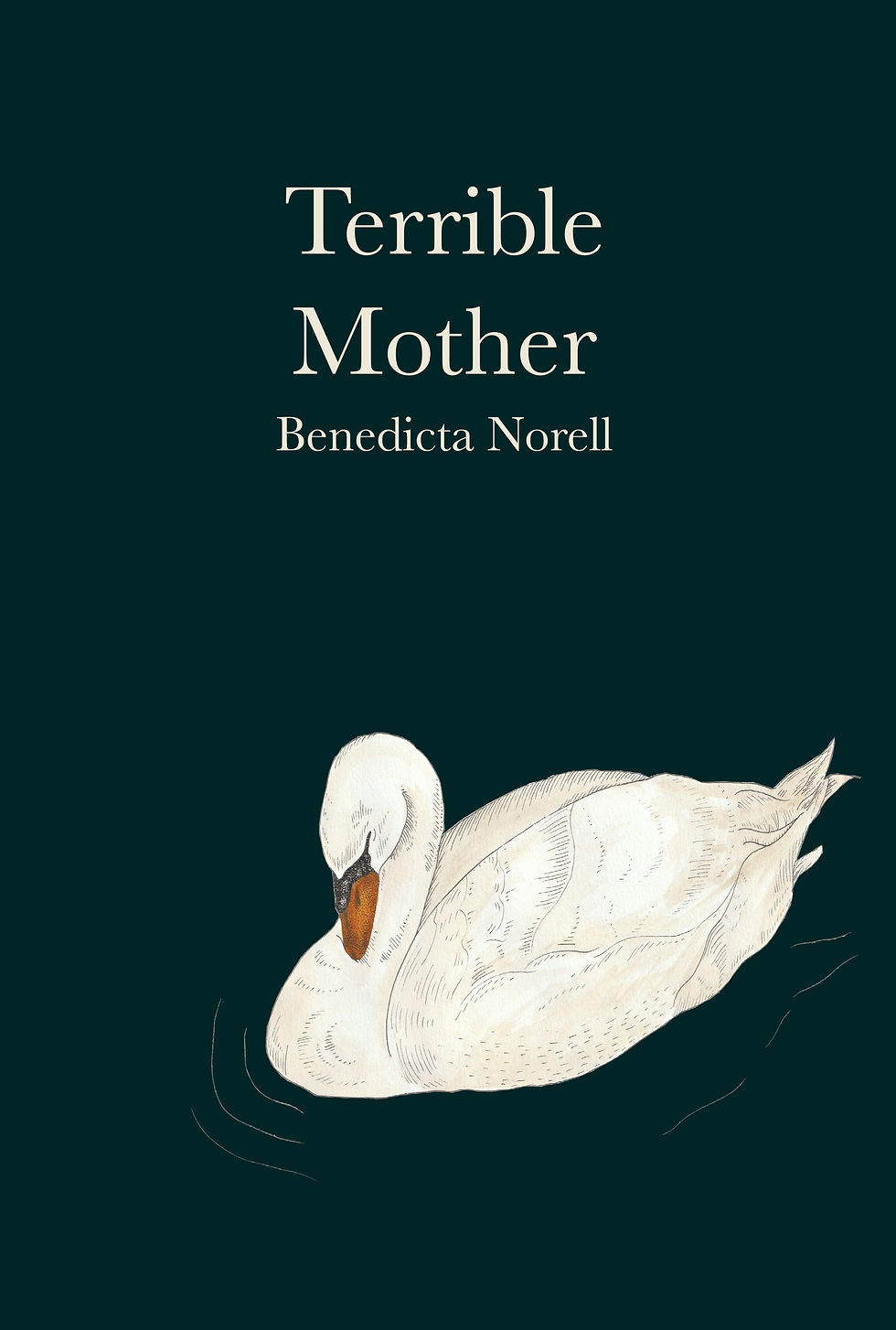
How long did the book take to write, and which of the poems did you write first? How did you come up with the title? I wondered if it was inspired in any way by Adrienne Rich’s poem ‘Hunger’, which has the line ‘the terrible mothers we long and dread to be’?
The book took a couple of years to write and edit. It started with a feminist project: I wanted to examine the weird, and sometimes awful, things people have felt entitled to say to me over the course of my life. I was asking myself how these things might be changing since I’ve turned fifty. All the poems at this early stage had these ‘things’ as their titles and as a result, the final poem 'Wrap Up in Your Power', an exhortation to overcome these epithets and insults, came naturally quite early on.
After about six months of working on the book, I began discarding some of the poems because they didn’t gel individually. And then I discarded the framework, as often happens with my writing. I realised that I was looking at myself from the outside and that wouldn’t work if I was going to write a memoir. Once I realised that was my intent and subject, the overall structure presented itself and the missing poems flowed into the biographical spaces.
Being called a terrible mother was a defining moment for me so I knew I had to write a poem about that. Making it the titular poem seemed correct for a number of reasons. It's a hugely misogynistic term, similar to scarlet woman (which I've also been called btw!) in its manipulative, archaic power and intent to wound and ostracise. Also motherhood connects the three parts of the book: how I was mothered, how I have mothered, how nature mothers me now that I am beyond the years of fertility.

Again on the subject of Adrienne Rich, I read this quote from Alice Templeton recently: ‘The term poetics suggests an explanation of the poet’s strategy of writing, but in reference to Rich’s work a poetics also implies an act of reading; it explains not only what the poet requires of the poem but what the poem requires of the reader.’ I wondered what, if anything, your poems require of the reader?
So much of the hard work has already been done by the poets and writers like Rich. I feel like they’ve given us the space to be candid in our individual experiences. It's also a duty, in a way. I do want to chip away at stigma and for that reason, I guess I ask that the reader meet me in the white space. Words can be treacherous, but like bullying and nature, the answer is in the pattern and that’s why I love poetry.

Quite a few of the poems use very minimal punctuation and I wondered if you could talk about this? I was interested in it in relation to theories such as Luce Irigaray’s theory of female – particularly mother-daughter – fluidity, and perhaps in the context of this book the flow between child to adult.
I love this. Generally I think of punctuation in terms of the flow between words and white space and sound and silence, but I hadn’t made that connection to another kind of flow for this book.
Punctuation is just one of my absolute favourite things. My editor, brilliant poet and novelist Catherine Balaq, made me realise I need to think about the internal consistency of punctuation in each poem. I like unusual and daring punctuation and I like the statement that leaving out punctuation completely makes. But you don’t throw all the paints at the canvas just because it’s joyful. Or you do in the first draft and then you spend many hours thinking about what to leave in and what to take out.

How did you choose a publisher?
I chose to submit to Black Cat Poetry Press primarily because of the name. The notion of the cat as familiar is always a sign of being on the same wavelength. In some ways I feel they were chosen for me and not by me, which has been such a gift.
Do you have a favourite poem in the collection?
My favourite is 'Money & Success' because it touches on where we’re going wrong today and provides as much of an answer as I can formulate.
Which poets inspire your work?
I’m inspired by unflinching contemporary poets like Yrsa Daley-Ward, Liz Berry, Jane Burn, Victoria Kennefick and Kim Moore. Many of my favourite poems contain water. 'Not Waving but Drowning' by Stevie Smith and 'There You Are' by Victoria Adukwei Bulley, for example. My favourite novel, Possession by A S Byatt, also contains lots of water and many of the poems in Terrible Mother started with walks by the canal.

I saw that you have a blurb by Kit de Waal, which is amazing – how did that come about?
Kit has been a mentor to me for a long while now. Another gift. She saw something in my work when we met in a writing group and encouraged me to keep going when I wasn’t getting much encouragement and was thinking about giving up. When I realised, after years spent on novellas, that I really wanted to focus on poetry, she was the one who made me stop talking and start writing.
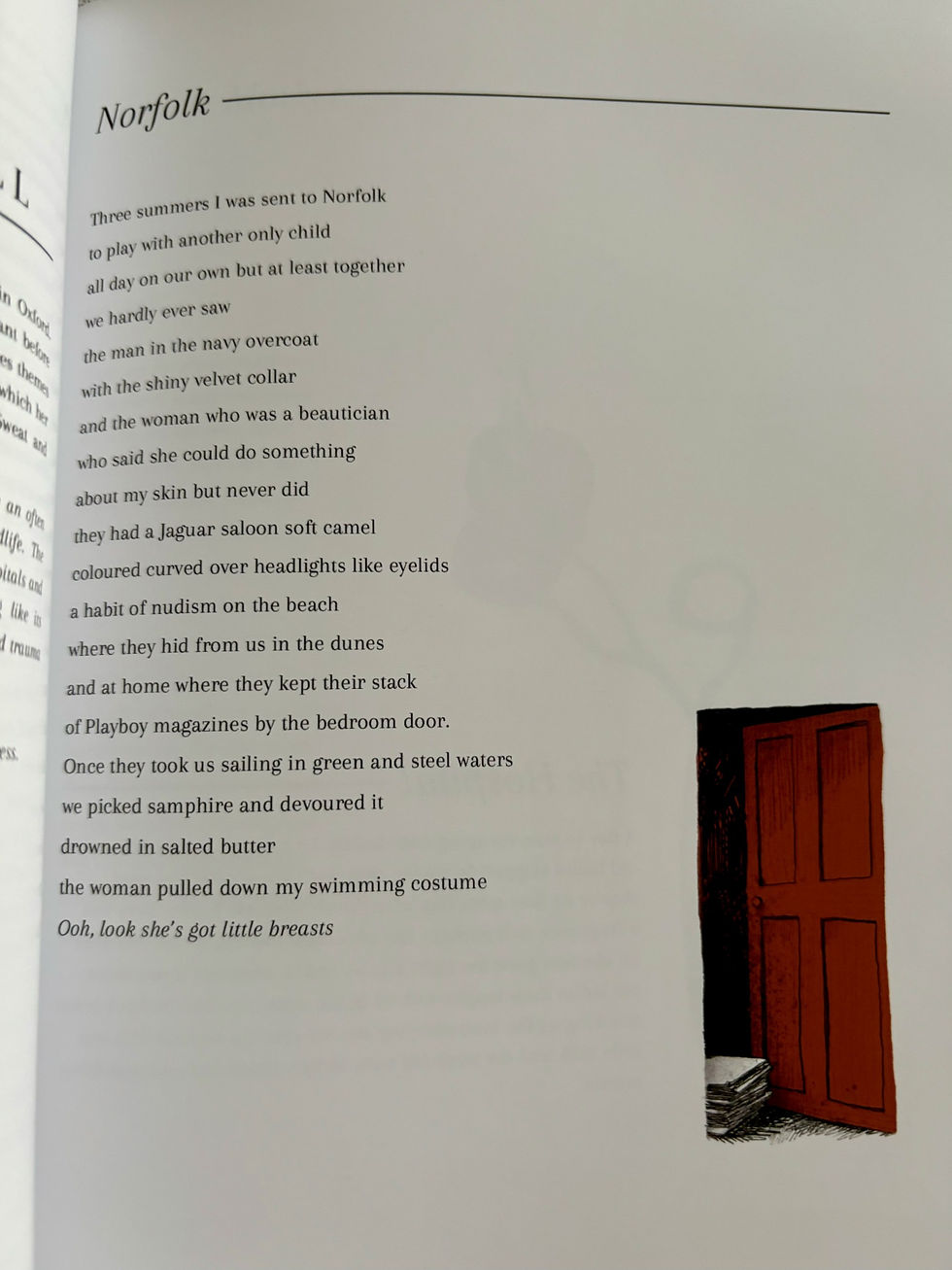
Do you have any other poetic/writing projects in the pipeline?
A micro chapbook which is ostensibly about clothes but guess what, it’s feminist writing about climate change, love, illness and identity. There’s one poem left for that one and I need to get it down on paper instead of thinking about it. I’ve built it up too much in my mind. I’m also editing and gently adding to an already full length collection about midlife and menopause, which goes into the physical side of things but is also about emotional, intellectual and spiritual transformation. A few poems from that have been published in lit mags. In addition, I have a draft of a novella about an English as a foreign language school, set in the 1980s, and I think it might be time for a rewrite. I also have an exciting editorial job coming up.
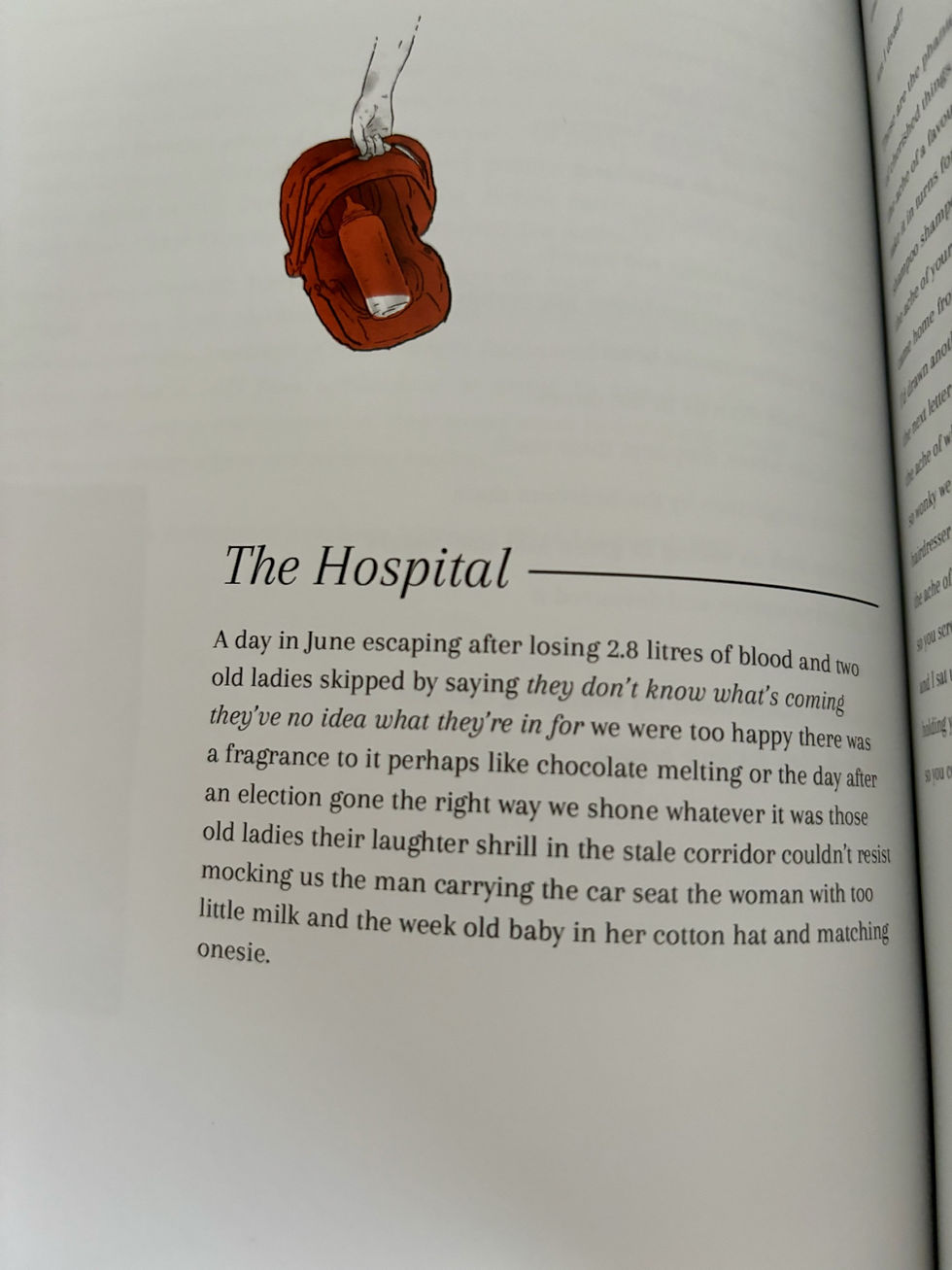
Have you any readings planned to promote the book?
This is slightly trickly with chronic illness. So far any readings I’ve done have been online. There are a couple of reels pinned to my Instagram bio and there’s going to be an online launch with Black Cat Poetry Press. It’s something I’d like to develop in the future.
Thank you, Sam, for these thought provoking questions!
You can buy Terrible Mother here:






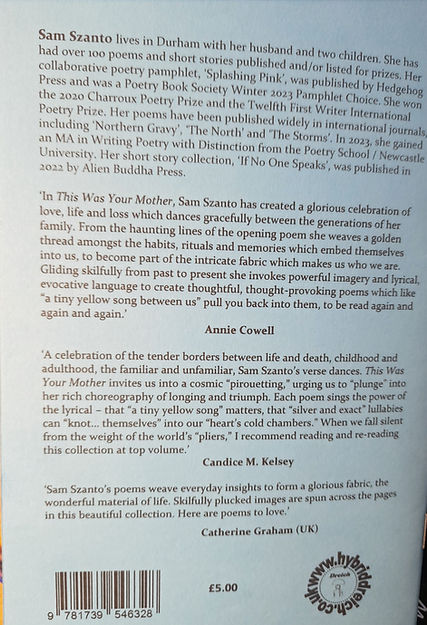
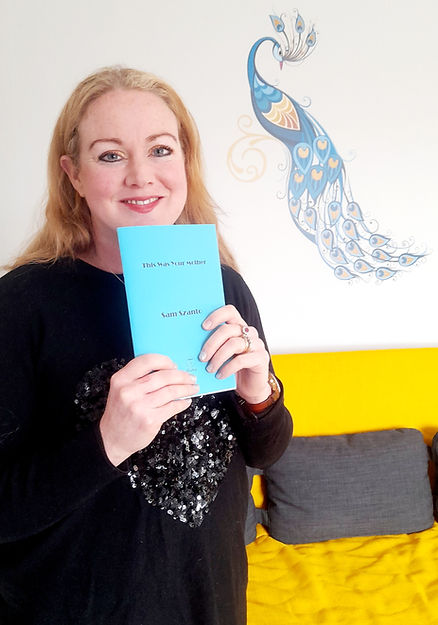



Comments